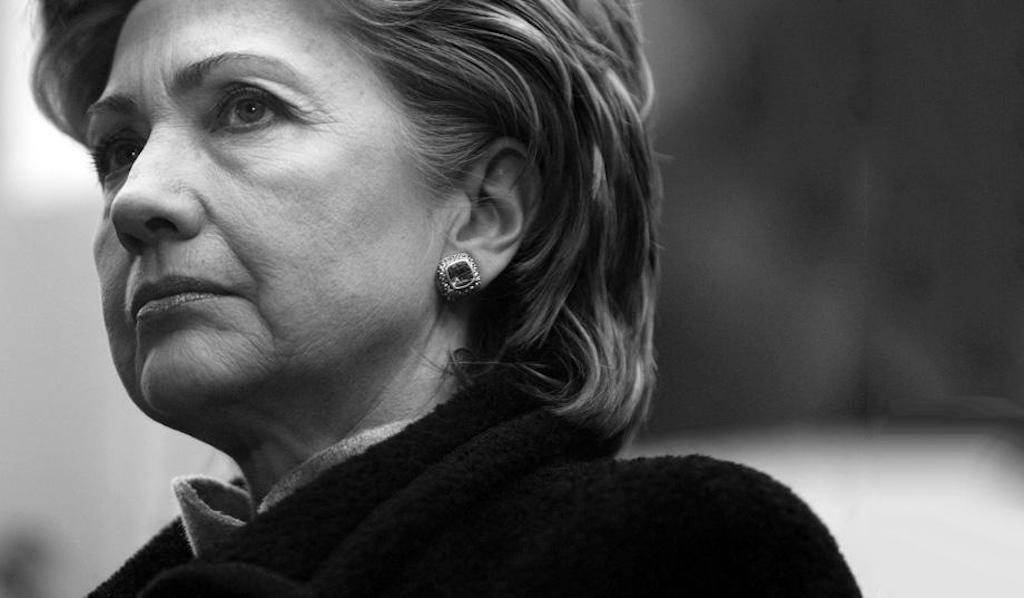Photo: National Review
On September 22, NATO jets scrambled to intercept Russian bombers on maneuver over the airspace of Norway, the United Kingdom, France, and Spain. This was only one of a series of incidents between Russian and NATO planes going back to November 2015. Since Russia’s annexation of Crimea in 2014, hostilities with the US-led coalition have increased. A brief period of military cooperation in Syria was broken off following US strike on a Syrian target, and on October 4, Russia suspended an agreement on disposing of weapons-grade plutonium, citing its national security concerns. Meanwhile, Russia is moving nuclear-capable missiles into the Kaliningrad enclave as US Secretary of State John Kerry calls for an investigation of Russian war crimes in Syria.
Given this grave escalation of friction, Hillary Clinton’s comments during a presidential debate on October 9 are chilling. Clinton pointed the finger repeatedly at Russia during her debate, rattling the saber not only on Syria (where she blamed Russia for Assad’s atrocities) but also on issues such as the recent string of political hacking events. Her hostility was clearest when she said: “I’ve stood up to Russia. I’ve taken on Putin and others, and I would do that as president.” (Debate transcript: http://www.nytimes.com/2016/10/10/us/politics/transcript-second-debate.html?_r=0)
In a strange reversal, it was the Republican, Donald Trump, who was conciliatory with Russia. The business magnate-turned-demagogue has previously said of Putin , “I’ve already said he is very much of a leader. The man has very strong control over his country.” In this debate he openly called for cooperation between the United States, Russia, and Iran on Syria. He openly broke with anti-Russia comments from his running mate, Indiana governor Mike Pence.
Clinton called for an air war, in the guise of no-fly zones, in Syria. Her reluctance to put troops on the ground has followed the pattern of US foreign policy after George W. Bush’s disaster in Iraq, but it is clear that she intends to continue to use this reactionary civil war as a virtual proxy war with Russia and Iran. Trump rightly critiqued Clinton’s 2002 vote for the Iraq war, yet also blamed Obama and Clinton for the US leaving its debacle in Iraq. Far from an anti-war gesture, this was a piece of realpolitik: the puppet government of Iraq could not politically afford to sign a Status of Forces Agreement giving US troops impunity for their actions, so the US had to withdraw.
As Trump has made noises of conciliation to Russia, neoconservatives who served as the architects of George W. Bush’s arrogant imperialist foreign policy have lined up behind Clinton. Former Bush adviser Robert Kagan said, “If she pursues a policy which we think she will pursue, it’s something that might have been called neocon, but clearly her supporters are not going to call it that; they are going to call it something else.” This strain of assertive empire-building, on the ropes after the disasters of the Bush years, has found a new lease on life in Hillary Clinton’s hawkish stances. Neoconservative ideology calls for open use of American armed force in the name of spreading liberal ideals. It also typically means a strong defense of Israel, and a Clinton presidency is likely to be friendlier to the Israeli governments than Obama’s has been.
Clinton represents a rightward shift from Obama. Mass antiwar sentiment had forced him to repudiate the neoconservative project. In its place Obama attempted a “pivot to Asia,” a competition with China for influence throughout east Asia, that has largely failed as the Arab Spring and the rise of ISIS have kept the Middle East at the center of world affairs. It cannot be forgotten that Clinton is a personal friend of war criminal Henry Kissinger, architect of the bombing of Cambodia and a coup in Chile under Nixon, whose endorsement she actively courted. With a set of advisors drawn from the national security apparatus, a Hillary Clinton administration is a signal that there is a desire to return to empire-building in the Middle East.
This is particularly dangerous because of Putin’s position. As the Russian economy has gone downward thanks to low oil prices and international sanctions, he has been repeatedly forced to rally his base with nationalist rhetoric and saber-rattling. Intervention in Ukraine has been costly in terms of sanctions, which have no end in sight, but Putin has worn his pariah status as a badge of honor.
Putin’s motives for entering the Ukraine conflict were not limited to whipping up nationalist fervor. NATO has expanded further into the Eastern European countries that were formerly in the Warsaw Pact or even, in the cases of the Baltic states (Estonia, Latvia and Lithuania) former Soviet Republics. The issue of NATO membership loomed large in the “Orange Revolution” in 2004 and the “Euromaidan” in 2014 that overthrew two Ukrainian governments for pro-EU/US governments. The goal of isolating Russia and consolidating a pro-NATO alliance up to its borders has driven Eastern European policy for over a decade.
In the last several days, the United States government has accused Russia of being responsible for a number of email security breaches that resulted in sensitive information being released about candidates, particularly Hillary Clinton and the Democratic National Committee. These hacks have revealed the manipulation that went on during the Democratic primary to prevent Bernie Sanders from winning the nomination. In the debate, Clinton openly stated that Putin is trying to influence the US election and made clear that Trump was the likely beneficiary.
One of the items to come out of this cache speaks volumes. A transcript of Hillary Clinton’s speech to a group representing firms that own apartment buildings shows her saying, “you need both a public and a private position” on issues. This hypocritical stance was directly referenced during the debates, and she attempted to pin the blame on Abraham Lincoln, citing a Steven Spielberg film. It was a glimpse below the mask of bourgeois politics and the back-room deals it makes, looking one way for the public and privately reassuring moneyed interests that they will be taken care of.
Those irresponsible radicals, such as Noam Chomsky and Adolph Reed, calling for lesser-evil votes for Clinton should take careful note of this speech. Clinton’s status as a “lesser-evil” only makes sense to those willing to deny the evidence that she poses a clear danger in her saber-rattling rhetoric and empire-building advisors. Obama, another lesser-evil, was able to demobilize a mass antiwar movement and keep it at heel through an expansion of the war in Afghanistan and adventures in Libya and Syria. If Hillary Clinton is allowed to do the same, how much can she be considered a lesser-evil?
Donald Trump is on the ropes following the revelation of a tape where he describes committing sexual assault and attempting to seduce a married woman. This despicable man, feared by the lesser-evil supporters of Clinton as an outright fascist, increasingly looks like little more than an orange-faced clown. His so-called “alt-right” white nationalist fan base has some of the characteristics of an incipient fascist movement, but Hillary Clinton is not someone we can ally with to fight fascism. If the white nationalists do establish themselves in government, Clinton is exactly the type of bourgeois politician who will fail to stop them until it is too late.
Rather, if Trump’s followers form a fascist movement, it needs to be fought in the streets. We recently celebrated the eightieth anniversary of the Battle of Cable Street, when the heroic working class in London stood up in mass numbers and stopped the British Union of Fascists from marching in a Jewish neighborhood with the slogan, “You shall not pass!” This sort of militancy and self-defense is the only way to stop fascist movements.
The international scenario stems from the inability of US imperialism to forge a new “consensus” around its imperial projects after Iraq. It is capable of projecting force anywhere in the world, but it is unable to create stable governments after it does. Obama’s presidency, beginning with a Nobel Peace Prize and a speech aimed at the Muslim world, has been hard pressed to recuperate from the damage wrought by Bush and his ideologues. The US’s rivals, principally Russia and China, have sought to take advantage of this and develop their own influence.
Hillary Clinton, in the likely event that she is elected, will enter this situation with Russia square in her sights, and a willing opponent in Putin. A new period of brinksmanship and proxy wars between nuclear-armed powers is deeply dangerous when the infamous Doomsday Clock of the Bulletin of Atomic Scientists is already at 3 minutes to midnight. But this is the price of global capitalism, which requires imperialist force to maintain its world order. In the US and abroad, mass movements are necessary to oppose the lurch into a new Cold War.










